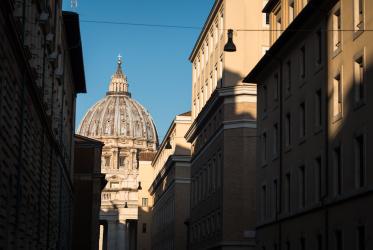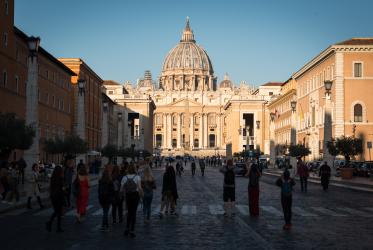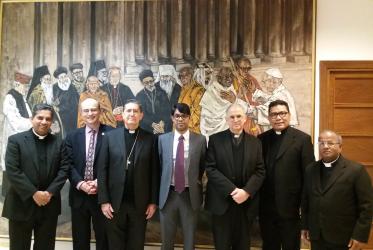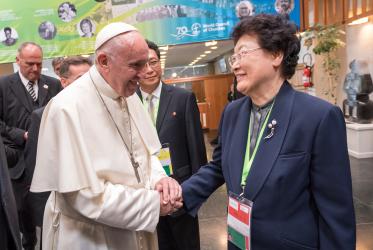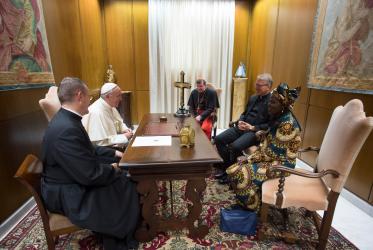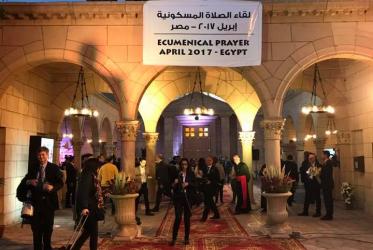Displaying 1 - 20 of 44
Bossey transforms the life of ecumenical students
29 January 2019
Catholics, WCC map future together after papal visit to Geneva
05 September 2018
#WCC70: Chiara Lubich and the World Council of Churches
16 April 2018
WCC delegation visits Conference of Latin American Bishops
08 February 2018
Roman Catholic-WCC group focuses on peace-building, migration
19 September 2017
Pope Francis, WCC leadership meet in Rome
24 August 2017
Growth in Agreement IV:
International Dialogue Texts and Agreed Statements, 2004–2014, Volumes 1 and 2
01 February 2017
